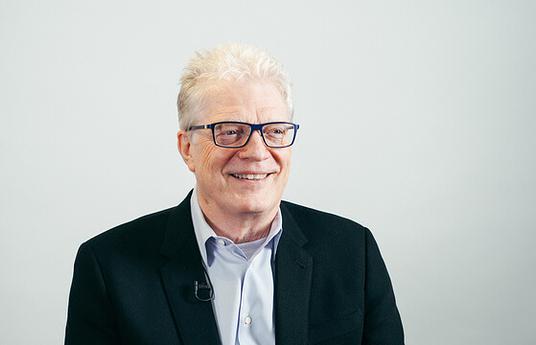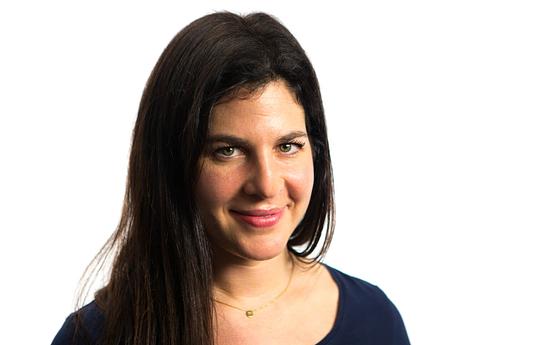Finland is often distinguished as having one of the finest education systems in the world, but even the most effective education systems are not future proof. January is traditionally a time of looking to the future, so we can’t help but wonder, what does the future hold for learning? We’ve picked the brains of over 100 educators, specialists and thought leaders to discover what the next 100 years of education could look like.
The unequivocal consensus is that education needs drastic change. Educators and policy makers will need the courage to reflect, challenge and innovate to create schools worthy of the next generations. And rapid technological advancement, explosive population growth, an almost unrecognizable job market, along with other societal and environmental challenges, mean that even the most exceptional educators have no time to rest on their laurels. It’s no exaggeration to say that the fate of younger generations is largely in their hands. Indeed, that’s exactly why so many are drawn to the profession.
While individual educators work passionately and tirelessly to do what’s right for children, they often get lost in a quagmire of bureaucracy and a system more interested in proving a teacher is doing her job than allowing her the freedom to do it. This can’t continue.
‘We've pretended to be doing the best for kids but we haven't really. We've just done what is convenient for ourselves, and that has to change.’ This is the frank observation of Professor Stephen Heppell, who believes that the starting point for any decision-making should always be ‘wondering how good kids might be and then going from there, rather than wondering how convenient things could be.’
"We've pretended to be doing the best for kids but we haven't really. We've just done what is convenient for ourselves, and that has to change"
It’s important that the future of education is built on solid research and evidence rather than convenience, political whims and personal conjecture. ‘If we follow the evidence in schools, as neuroscientists understand more and more about how the brain works and how we learn, we will be able to take this understanding and improve the way that we teach young people,’ says Sir John Holman.
‘For example, we are now beginning to learn things about the structure of the school day, about teenager’s circadian rhythms and their optimum, about the optimum way of sequencing learning between initial learning and reinforcement, all these things to inspire positive learning. In the next 100 years we will understand a great deal more and be able to structure the school day more intelligently. There will be many other things we will learn from neuroscience in the future that we must all embrace.’
But in 2018 entire school systems continue to ignore evidence by forcing teens to start school in the early morning, despite warnings of how this can damage their learning. This is just one example of entrenched tradition and convenience that schools of the future will have to work harder to unpick.
"I hope that in 100 years schools will be places where you can learn in a hammock so you don’t have to sit in chairs" - Daniel, aged 8
Professor Stephen Heppell gives another example; ‘If you tried to design a chair that was anti-reading, that actually stopped kids from reading, you would come up with a design that is pretty much today’s school chair… But if you ask the kids they will tell you immediately that you could do it better. They'll survey each other and they'll say: 'when we read, this is how we read, so this is what our reading space should be like.'
Daniel, 8, from Finland would agree with this sentiment. His desires for the future of education are simple - ‘I hope that in 100 years schools will be places where you can learn in a hammock so you don’t have to sit in chairs.’
So why do we use these school chairs? ‘Because they stack well,’ continues Professor Heppell, ‘That's the only reason… There are 2.2 billion children in the world and no one is really asking them how they can make learning better. That's a waste of an opportunity. Given the number of children we've got and the circumstances of the world, it's very hard to not see education being transformed by children rather than for children.’
And what is it that young people want out of education? Hammocks, hologram teachers and good food - Finnish students are used to such a high standard of education that their hopes for the next 100 years are shockingly humble (and sweetly humorous - check out the full video!) But amongst these imaginative responses students highlighted the desire for more highly educated teachers in specialized areas, flexible seating, independent learning and to have the best education system in the world. Oh - and iPads - of course!
It seems almost redundant to mention that the future classroom will be transformed by technology. A.I, A.R, V.R et cetera will likely play as central a role in formative education as ABC does now. Technology is advancing so spectacularly that experts are predicting integrated AI, 3D printed meals and even underwater cities to be the new normal in 100 years time. Nobody really knows how technology will alter education in the coming century, but we can certainly agree that advancements will alter the landscape of learning.
Carolyn Stuart, Education Sector Lead at Network for Learning, New Zealand, predicts a future where studying to gain knowledge will be a thing of the past. ‘The next 100 years of education will be about adapting and changing to a time when knowledge becomes innate, where education isn't about learning things. Whether that's imprinted on your DNA or it's downloaded to your neocortex, we are rapidly moving to a time when knowledge will be innate - it will be just stuff that you know. Therefore, education won’t be about imparting information to students, it will actually be about supporting them to use what it is that they innately know. And that just changes everything.’
"The next 100 years of Finnish education should focus on the interplay between humans. The industrial revolution made us highly productive beings, but now our lives are less about producing and more about what we create between us"
For better or worse, technology will change almost every aspect of our lives. But, a future filled with edtech doesn’t (necessarily) mean we’re blindly hurtling towards the kind of sterile, mechanized classroom that some might fear. Kahoot is a game based learning platform with 50 million users worldwide, popular with learners and teachers alike, particularly in BYOD classrooms.
Kahoot’s co-founder, Johan Brand, believes that technology can provide the perfect springboard for soft skill development. As he says, ‘digitalization is a way of amplifying the human side of us (...) The next 100 years of Finnish education should focus on the interplay between humans. The industrial revolution made us highly productive beings, but now our lives are less about producing and more about what we create between us. I think the next 100 years will comprise of us being even more respectful of each other, leading to less conflicts, and education will have the job of breaking down our boundaries and will focus on the communication and collaboration between us as humans.’
Quite apart from becoming tech dependent cyborgs, many educators anticipate a future where children learn more about what it means to be human, how to find their passion and how to pursue their potential. ‘In the next 100 years,’ says Pasi Sahlberg, Finnish educator and scholar, ‘I hope schools everywhere work in a way that encourages each individual to find their passion, the flame within, and through that are able to change their lives and the world. Because without this there will be no change.’
Any discussion on the future inevitably turns to the challenges humanity will face. By 2050, in just 32 years, 10% of the world’s population will be at risk of forced displacement due to climate change and the oceans’ fish-stocks are predicted to have collapsed entirely. Given the scale of the challenges it is unclear what kind of world children will be inhabiting 100 years from now.
With this in mind, it’s no surprise that discourse centres not only on helping learners to fulfill their dreams, but also their responsibilities to society. Students must learn to be a good citizen, to drive positive change, to question, to challenge and stand up for what is right.
‘The next 100 years of education should teach children more about the world they live in,’ says Sophie Deen, CEO of Bright Little Labs, a children’s media company which makes educationally valuable, gender-neutral apps and games for kids. ‘Not just the pocket that they grew up in, but how they connect to other parts of the world and how all of our choices and the way that we behave have direct consequences on the planet.’
‘We are tricked into thinking that we can’t really make a difference or that we don’t have much of an impact or our sphere of influence is small, but that’s not true,’ Deen went on to explain, ‘So I think we need to teach children about the real issues in the world and how they can directly do something about it.’
"We are tricked into thinking that we can’t really make a difference or that we don’t have much of an impact or our sphere of influence is small, but that’s not true"
Many countries are already leading the way in this. Johan Brand told us about his experience in Norway, saying, ‘Where I come from, education is about becoming a good citizen. It’s about learning social skills, and learning about the environment you’re going into that’s ever-changing… Education should make you feel confident and equipped to go out into the world and do something.’
The truth is, none of us know what education will look like in 100 years. Sir Ken Robinson sums up the situation perfectly, ‘We’re living in times of revolution and it’s not going to slow down. We are living in times that are driven by rapid evolution of digital technology, and the changes we have seen in the past fifty years will be nothing compared to what lies ahead in the next fifty. I mean, extraordinary changes are afoot in the way these technologies affect how we live, the work we do, where we do it, who does it.’
So how do we change a system that so desperately needs it? Robinson continues, ‘I always go back to where I began with this, by saying you have to understand what sort of a system it is. If you see it as a fixed system whose broad design came off the mountain inscribed in tablets of stone since time immemorial, then you are going to be baffled and a bit intimidated by it. But if you recognise that it is a human system, that it’s dynamic and it is changing, it makes the task more plausible.’
We can make predictions about outrageous technological advancement, teachers being replaced by robots and so on, but the one thing we can probably all agree on is that in 100 years time education should equip young people to live successfully, happily and responsibly in society. Which begs the question - are we doing that now? And if not, what are we educating for? As the saying goes, a journey of a hundred miles begins with a single step. It’s time to take action to create the future of education, today.


